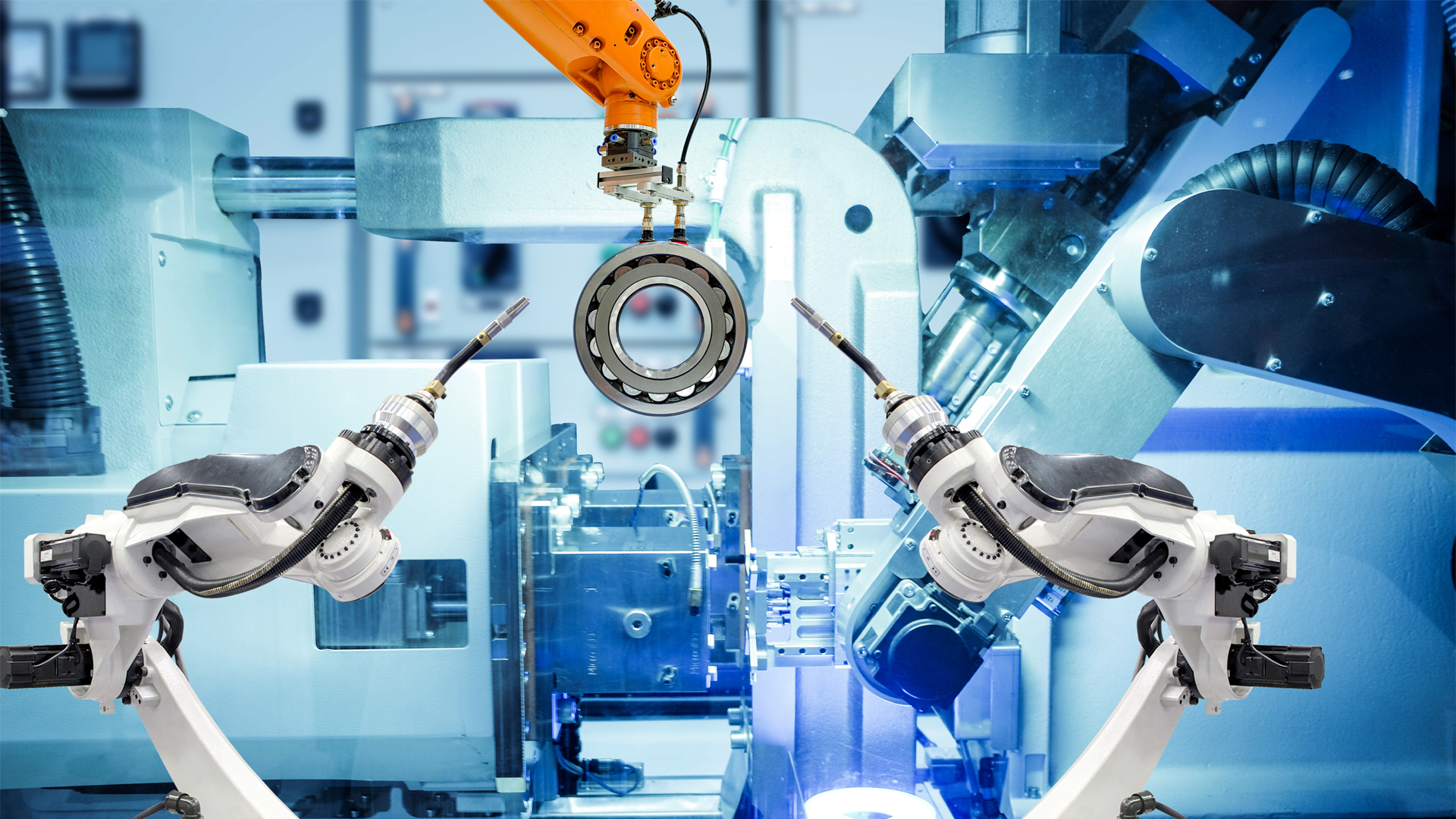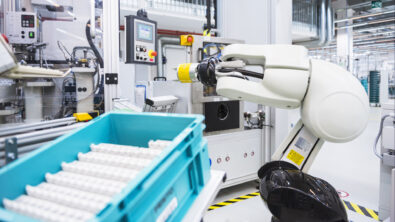Artificial intelligence (AI) comes to the factory floor

“Artificial intelligence” may still conjure images of fanciful, obscure, and even top-secret activities, but this technology has come of age in practical, real-world applications – including industrial machinery.
By applying AI to production operations through your manufacturing operations management (MOM) system, your industrial machinery company stands to achieve new levels of productivity and quality, even as products and processes become more complex.
The application of AI to industrial machinery is the subject of a new white paper titled, “Intelligent manufacturing for industrial machines: How AI increases manufacturing flexibility, productivity and quality.”
The paper describes how the industrial shop floor is being reshaped with AI-based solutions.
Industrial machinery manufacturers are experiencing increased flexible design and manufacturing, adaptable production machinery utilization, in-depth product quality assessments, and more.
The white paper also presents specific use cases to illustrate how AI technology can be profitable for industrial machinery producers.
How AI leverages complexity
Like most complex manufacturing endeavors, the industrial machinery industry has experienced an explosion of data because from constant changes in technology and market environments.
Today’s machines generate more data with new onboard electronics, edge computing capabilities, hyperautomation, and more.
Machine makers must also contend with an abundance of new data from emerging technologies on the factory floor like cloud services and the industrial internet of things (IIoT).
Technological solutions directed at outside forces – regulatory proliferation, consumer-driven customization, and intensifying global competition – result in another major source of data.
To gain a competitive advantage, industrial machinery companies have an opportunity to tap this “big data” and uncover new manufacturing insights.
The value of AI comes from its ability to cut through the mountains of raw data to find useful information that supports better, faster decision-making – in some cases, decision-making by the AI system itself!
Neural networks and other AI tools feed on the vast quantities of data generated on the manufacturing floor, find patterns and trends, generate algorithms to predict risks and then help manufacturers reduce them.
How AI and MOM raise productivity
As AI becomes an integral part of manufacturing operations, Siemens anticipates that its capacity to understand, reason, learn and interact will create significant benefits throughout the product and production cycle.
The starting point to achieving these benefits is a synergistic relationship between automated factory equipment, MOM systems and AI applications.
MOM systems enable the digital and real worlds to converge on the factory floor.
They orchestrate production workflow in a way that optimizes both the quality of the finished product and the utilization of manufacturing capacity.
AI technologies enhance and accelerate the workflow by streamlining the movement of information between the manufacturing floor and the virtual realm of manufacturing software solutions.
AI tools can be applied to uncover the parameters and KPIs with the greatest effect on a targeted manufacturing goal, clarify dependencies through data analytics, and then optimize processes in a way that leads to realizing the goal.
Gleaning the benefits: two examples
AI can be applied to MOM-managed activities to accelerate decision-making and make improvements throughout the industrial machinery enterprise, from the supply chain to specific production operations, to product quality and servicing, and more.
Read the white paper to learn how AI improves the following two manufacturing efforts:
- Improved productivity and efficiency by managing order splits – AI enhances the planning department’s ability to split orders in the most efficient and effective way. It enables decision-makers to allocate split orders among production lines based on comprehensive information about customized features of the same machine model within the order, material and component availability, logistics, the distribution of qualified personnel, the status of production equipment and more.
- Optimization and reoptimization of parameter settings – The requirements and objectives for parameter setting have grown in complexity as industrial machine makers manage increases in product variation, accelerated speed to market, more frequent engineering and material changes, added functionality and other factors. AI tools are able to account for all these details as they help optimize parameter settings for improved output quality as well as reduced waste and energy consumption.
Learn more about artificial intelligence and its emerging applications and benefits to industrial machinery manufacturers.
